"This course has been a very memorable experience in my life! China's profound culture and creative Chinese brands became the most interesting subject for me, and I am honored to have this opportunity to study and live in China. I want to treasure the beautiful culture of China and share it with my German classmates." Elisa Heidt, a German student, said.
On October 24, the second phase of the course "Chinese Culture and Chinese Branding", which was offered by the Sino-German School of Design and Communication for German students and participated by Chinese and German students in cooperation, was officially held. Zhejiang Wanli College President Ying Min, Party Secretary Ding Yajun, International College Vice President Zhang Rong, Sino-German College Visual Communication Design Department Director Gao Di, and eight German students from the University of Applied Sciences of Design and Communication in Hamburg and students from Sino-German College attended the ceremony. The corporate instructors of Jiu Ru Cheng Group, Black Stone Culture Communication Co., Ltd. and Chuanhe Creative Design Co.
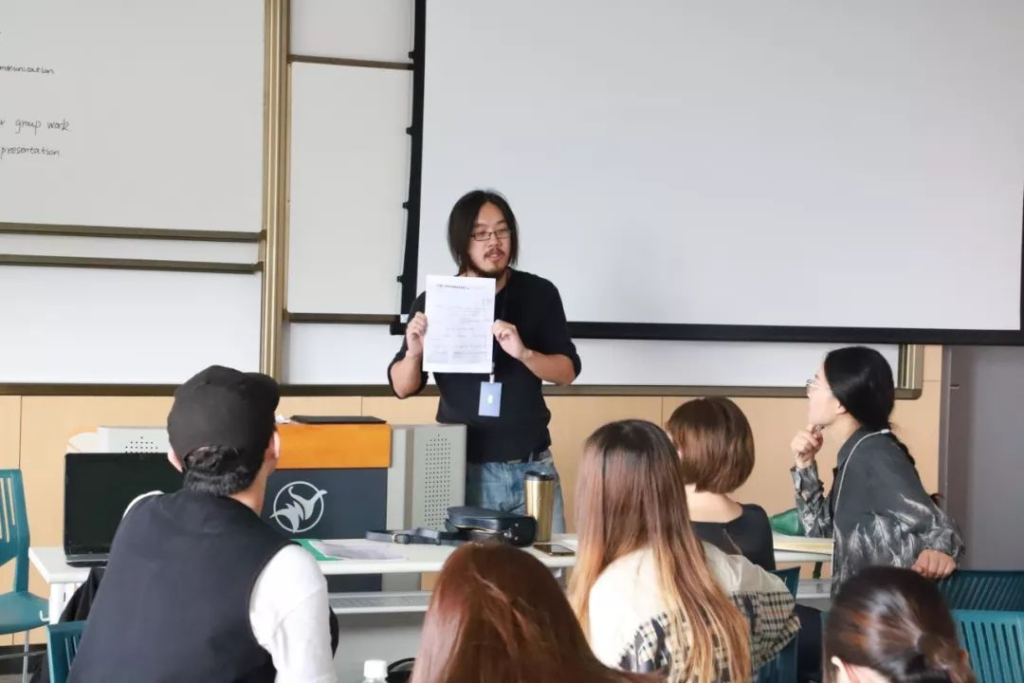
School-enterprise cooperation, internationalization of Chinese brands
The course "Chinese Culture and Chinese Branding" is one of the courses in the "Chinese Culture and Practice" series developed by the Sino-German Institute for European students. This series of courses is the active exploration of Sino-German Institute to develop international education and cultivate cross-cultural "One Belt, One Road" high quality applied talents. The aim of the program is to combine the cultivation of intercultural competence with professional knowledge, so that university students from European countries can learn about Chinese culture and understand Chinese characteristics in the practice of enterprises. The credits taken by German students will be included in the European ECTS credit transfer system and recognized by the German partner universities.
In the project-based topics of the course, students from the Hamburg University of Applied Sciences in Design and Communication and the Sino-German Academy formed four groups to carry out their projects under the leadership of professional tutors and corporate tutors, and to work on real problems. At the closing ceremony, they presented their project proposals to the partner companies in the form of a project proposal and presented their practical results on site.
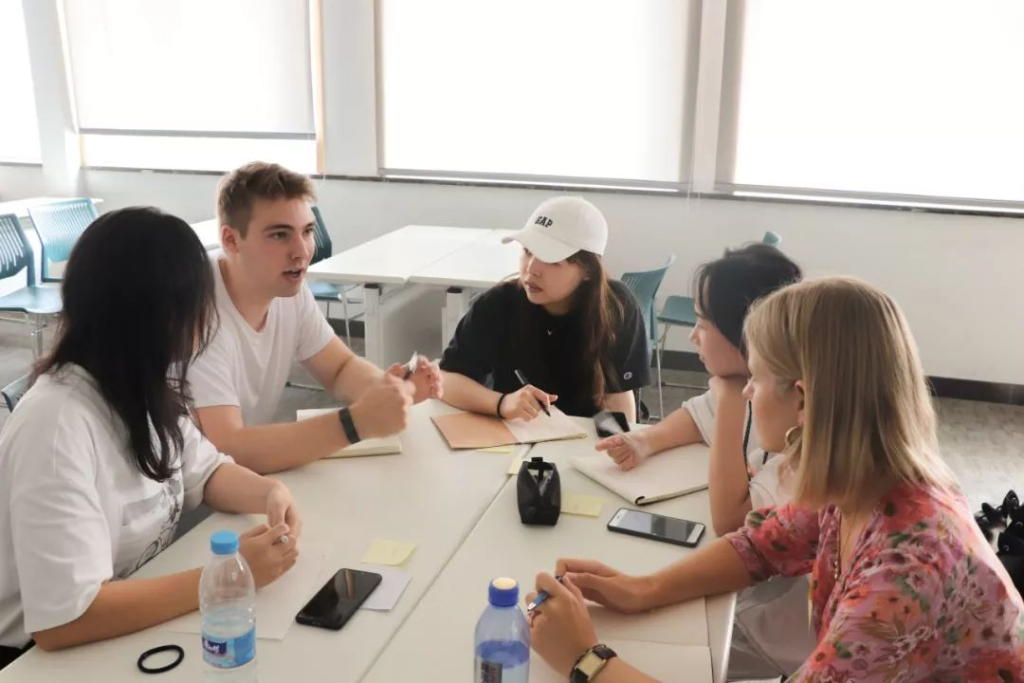
The four groups presented their results on the topic of "Transformation and upgrading of Chinese brand internationalization". The "Jiu Ru Senior Living" group proposed two solutions: first, to rejuvenate the Chinese senior living brand through diversified activities such as tea parties, charity events and cooking classes, and to establish intergenerational hyperlinks; second, to build a new global community, using innovative technology to provide diverse, free and comprehensive senior community services. The "Charming Ningbo" team explored Ningbo culture during their research and came up with a plan to enhance the cultural appeal of Ningbo through linking Ningbo and Shanghai, connecting nature and modernity, and using social software to attract foreign tourists of all ages. The "Vibrant Beilun" team used a flexible marketing strategy to propose a new brand image design for Beilun Port, using the Zhenhai Salamander as an IP image to enhance Beilun's international influence in order to attract young people from all over the world to start their own businesses in Beilun.
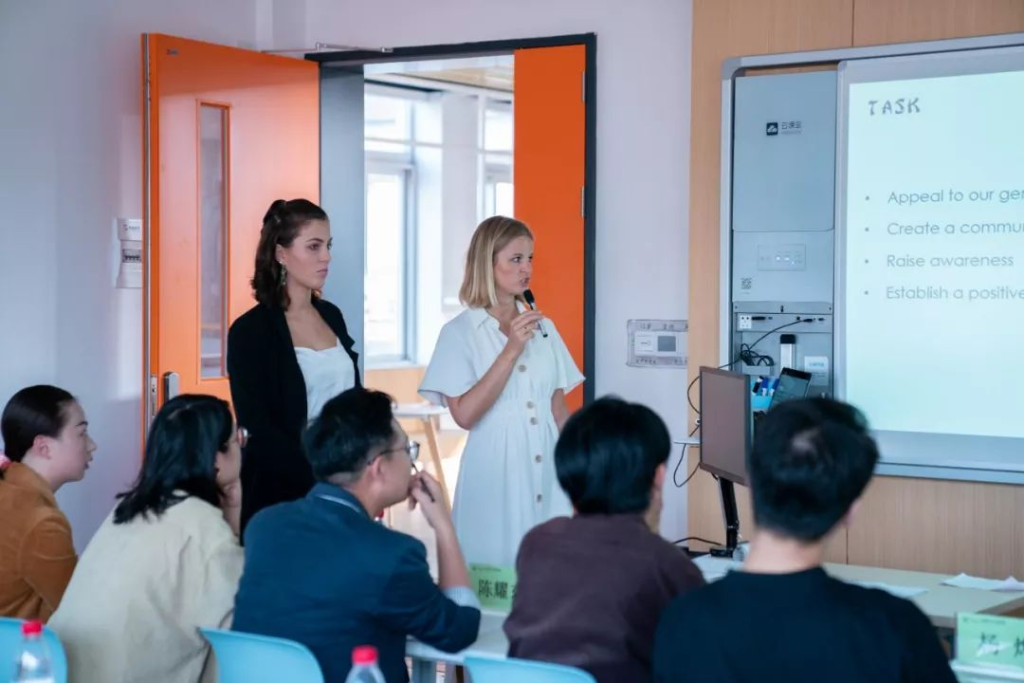
After the wonderful presentations of each group, the corporate mentors from the partner companies, Mr. Tal Junru, Mr. Xuan Mengdan, Mr. Chen Yaodong and Mr. Yu Hengchong, said in their comments that they were impressed by the research and presentation of each group, and that the form of transnational cooperation also injected international elements into the local brands, and at the same time, they also gave valuable suggestions to the students to focus on the real needs of the brand consumers and fully reflect the Chinese culture and social characteristics, etc. The students were also given valuable advice to focus on the real needs of brand consumers and fully reflect Chinese culture and social identity.
Jin Yuyan, a participant of the project proposal, said, "Starting from the visit to the enterprise, the research, discussion, reporting, revision and improvement conducted in groups until the final report was made, during this month, I learned from the experienced German students how to arrange the tasks in a well-organized way and how to present our ideas and planning systematically. With the valuable experience of this activity, I have a deeper understanding of my major and a clearer direction for my future study." International student Paula, on the other hand, said that the one-month course was not long, but it was very rewarding. Her teamwork and coordination skills were improved during the cooperation with Chinese students, and she also gained precious transnational friendship. Chinese culture will be a source of inspiration for her studies back in Germany, and she is very happy to share what she has seen and heard in China with the German students and teachers.
Multi-dimensional classroom, all-round experience of Chinese enterprises
The course was presented in a diverse way and closely combined the theory and practice of Chinese culture to draw a three-dimensional picture of Chinese culture and Chinese brands in the minds of the students. During the one-month course, eight German students, led by the course instructor, visited famous places in Ningbo and its surrounding cities - Tianyi Pavilion, Dongqian Lake, Lu Xun's hometown, visited Ningbo local enterprises such as Junsheng Group and Duya Electromechanical, and learned about the industrial scale, business operation and management mode of modern Chinese enterprises, through Through lectures and workshops on cross-cultural themes such as "Visual Representation of China", "The Moon and Chinese Design" and "Chinese Film Art", we learned about the embodiment of Chinese culture in practice and the The need for cross-cultural development of Chinese brands.
Jan Pischkle, a German student, said, "I was struck by the speed of development in China, which is very different from what I imagined China to be. In the future, the cooperation between Germany and China will be even closer, and I hope I can also help Chinese brands come to Europe to develop their market."
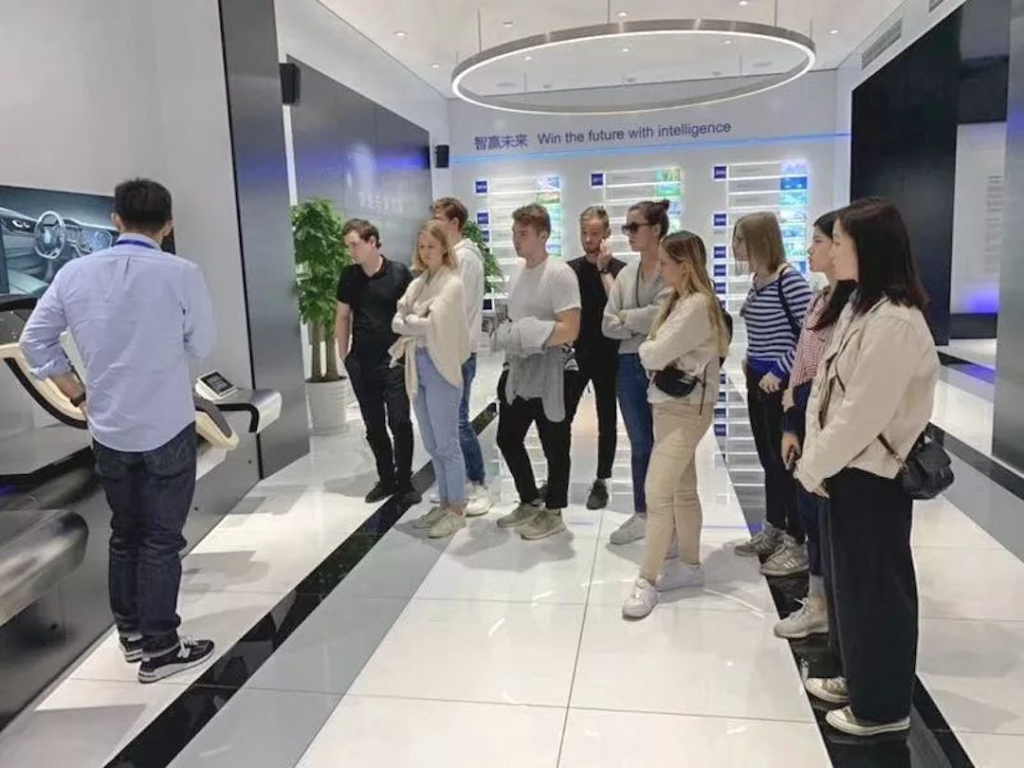
In order to let German students experience the traditional Chinese family life, experience Chinese culture from different aspects, and enhance the friendship between Chinese and German students, our institute specially arranged 8 German students to stay in the homes of local students to feel the harmony and warmth from Chinese families. Zhou Jianing, the "host" from class 191 in advertising, shared: "We let the German students taste my parents' Ningbo cooking for dinner. During the dinner, I found out that they really like potatoes and I learned that potatoes are a traditional ingredient in Germany. They also complimented my parents' other dishes and we had a great conversation that night."
Fabian, a German student, said, "The Chinese students and parents are very warm and friendly, I feel especially warm and fun to make dumplings and stir-fries with them, and I thank them for taking me to taste Chinese food and feel the harmonious atmosphere of a Chinese family. I am already looking forward to my next visit to China!"
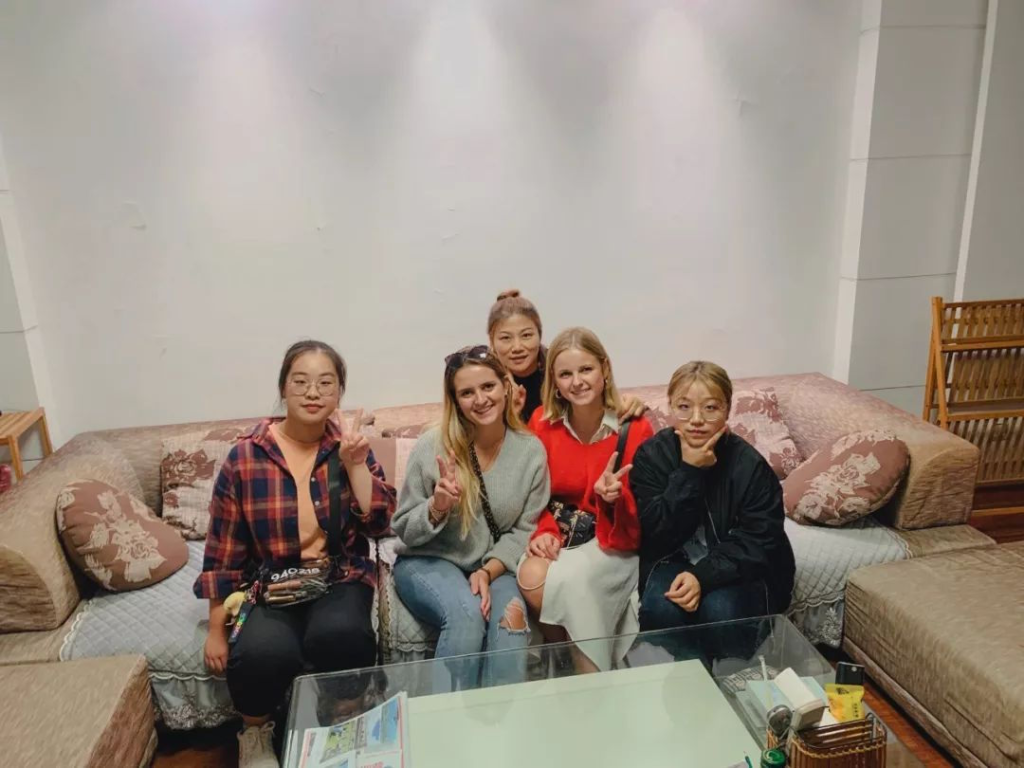
Zhejiang Wanli College President Ying Min concluded at the closing ceremony that international teaching is the general direction of our school's development. The purpose of the Sino-German school-enterprise cooperation practice course is to open a window for European students to understand contemporary China in practice, to build a platform for in-depth cooperation and exchange between Chinese and German students, to tell the Chinese story, to spread the Chinese voice, and to promote Sino-German cultural exchange. We hope that the students will keep their enthusiasm, explore actively, communicate widely, improve their professionalism while doing cross-cultural thinking, and through the series of activities arranged in the course, enhance their understanding and friendship, and become ambassadors of cultural exchange between Chinese and German youth.
Editor | Gao Siyu Chen Dehao
